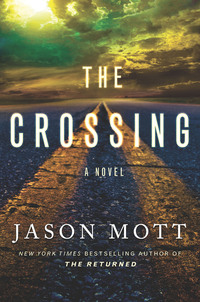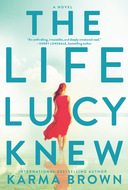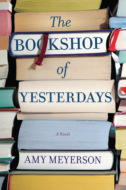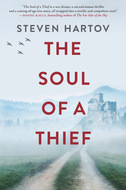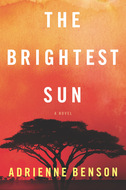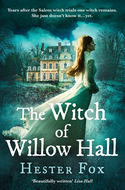Das Buch kann nicht als Datei heruntergeladen werden, kann aber in unserer App oder online auf der Website gelesen werden.
Buch lesen: "The Crossing"
Stay and die, or run and survive.
Twins Virginia and Tommy Matthews have been on their own since they were orphaned at the age of five, surviving a merciless foster care system by relying on each other. Twelve years later, the world begins to collapse around them as a deadly contagion steadily wipes out entire populations and a devastating world war rages on. When Tommy is drafted for the war, the twins are faced with a choice: accept their fate of almost certain death, or dodge the draft. Virginia and Tommy flee into the dark night.
Armed with only a pistol and their fierce will to survive, the twins set forth in search of a new beginning. Encountering a colorful cast of characters along the way, Tommy and Virginia must navigate the dangers and wonders of this changed world as they try to outrun the demons of their past.
With deft imagination and breathless prose, The Crossing is a riveting tale of loyalty, sacrifice and the burdens we carry with us into the darkness of the unknown.
JASON MOTT is the critically acclaimed and New York Times bestselling author of The Returned, which was adapted for a network television drama series. A Pushcart Prize nominee, Jason holds a BA in fiction and an MFA in poetry. He currently lives in North Carolina.
Also By Jason Mott
The Returned
The Wonder of All Things
The Crossing
Jason Mott

Copyright

An imprint of HarperCollins Publishers Ltd.
1 London Bridge Street
London SE1 9GF
First published in Great Britain by HQ in 2018
Copyright © Jason Mott 2018
Jason Mott asserts the moral right to be identified as the author of this work.
A catalogue record for this book is available from the British Library.
This novel is entirely a work of fiction. The names, characters and incidents portrayed in it are the work of the author’s imagination. Any resemblance to actual persons, living or dead, events or localities is entirely coincidental.
All rights reserved under International and Pan-American Copyright Conventions. By payment of the required fees, you have been granted the non-exclusive, non-transferable right to access and read the text of this e-book on-screen. No part of this text may be reproduced, transmitted, downloaded, decompiled, reverse engineered, or stored in or introduced into any information storage and retrieval system, in any form or by any means, whether electronic or mechanical, now known or hereinafter invented, without the express written permission of HarperCollins.
Ebook Edition © May 2018 ISBN: 9781474083669
Praise for Jason Mott
“Spellbinding.”—People
“[A] poignant story of loss and love.”—Bookpage
“Lovely… A revelation.”—Bookreporter.com
“White-hot.”—Entertainment Weekly
“Exceptional…Riveting.”—Publishers Weekly, starred review
“Compulsively readable.”—The Washington Post
“Extraordinary.”—Douglas Preston
“Beautifully written…Breathtaking.”—Kirkus Reviews, starred review
“A deft meditation on loss.”—Aimee Bender
“Ambitious and heartfelt.”—The Dallas Morning News
“A beautiful meditation on what it means to be human.”—Booklist, starred review
“An impressive debut.”—USA TODAY
Contents
Cover
Back Cover Text
Booklist
Title Page
Copyright
Praise for Jason Mott
LAUNCH
PROLOGUE
ESCAPE VELOCITIES
ONE
ELSEWHERE
TWO
To My Children
THREE
ELSEWHERE
FOUR
To My Children
FIVE
ELSEWHERE
SIX
To My Children
SEVEN
ELSEWHERE
EIGHT
SEPARATION
NINE
ELSEWHERE
TEN
To My Children
ELEVEN
ELSEWHERE
TWELVE
To My Children
THIRTEEN
ELSEWHERE
FOURTEEN
To My Children
CELESTIAL ENCOUNTERS
FIFTEEN
ELSEWHERE
SIXTEEN
Virginia
SEVENTEEN
ELSEWHERE
EIGHTEEN
Tommy
NINETEEN
TWENTY
EUROPA
EPILOGUE
About the Publisher
LAUNCH
ESCAPE VELOCITIES
ONE
In the middle of a pockmarked crossroads someone had painted the word PEACE in six-foot-tall white letters on the edge of a crater. The night was late and the road black, but the word—what was left of it—caught the starlight and glowed. The lettering was sharp and formal, placed by a steady hand. Someone had cared. About the letters. Maybe even about the word. So I couldn’t quite understand how PEACE had met such a bad end out here in the middle of nowhere.
And it truly was nowhere.
If you’ve never been to Oklahoma, you should go. It’s a beautiful place, a place where everything seems to stand alone. Lone trees strike out of the distant horizon, so far away from anything it makes you wonder how a lone seed could ever have gotten there in the first place. In Oklahoma, far houses stand and watch over grassland oceans that shimmer in the dim moonlight. In Oklahoma, the wind has long legs that carry rain clouds on stalks of gray. In Oklahoma, the sun rises far, reigns high, and then comes close in the evening and sits beside you until you doze off on the front porch.
Oklahoma is a place where loners have formed a community. It’s a place where people are both alone and together at the same time, like Tommy and I always were. It’s a special thing: always having someone with you. It gives you legs to stand on.
I was seventeen when Tommy and I ran away from the war and started on what would come to be our last trip together. Seventeen’s an odd age. Too old for dreams, too young for reality.
It was a hard January when this all happened. Any promise of spring was far off as I walked the frozen highway. The ground was still locked from cold and every particle of snow had been swept away so that there was only brown, barren earth. The cold swelled up around me like static on an old television. Now and again the starlight seemed to exhale and the wind raced over the empty winter fields and passed through me hard enough and frigid enough that it frightened me.
To keep my hands from trembling, I turned them to fists buried inside my pockets. To keep my teeth from chattering, my jaw was locked. The muscles ached from holding station. I stomped my feet to keep my toes connected to my body. Now and again they drifted off on their own accord. I was never quite sure if they would return.
But even with all of this, there was beauty. Several hours before, I watched as the failing light went dark and a fistful of bare winter trees jutting up from the sides of the road swung from being thick gray arteries to thin purple veins to black silhouettes that might have been calligraphy of some exotic language, punctuating the black cursive of the small highway scrawling through the countryside. Then the last of the light went away and all the ways the trees had looked became just another memory I would always carry in me.
I was alone that night...sort of. I hadn’t seen a house since passing through a small, sleepy town before sunset, where the one stoplight on Main Street flashed off and on. Yellow in one direction, red in the other. Even though lights sometimes burned inside the bowels of the homes—a mixture of trailers and two-story farmhouses with clapboard siding and old paint peeling like psoriasis—the town looked left behind, a city desiccated by plague. Everything was weathered and empty, ready to be filled by story and myth. I could imagine dragon eggs hidden in storm shelters, elder gods tucked away in attics. I’ve always had a tendency to drift off into imagination.
In the window of a darkened diner a sign—lit garish red by the town’s single stoplight—declared God Blesses the War. Directly across the street, almost like a bookend, another sign hung in the window of a home and alleged God Left. So The Disease Came. I still don’t know exactly who was right.
At one point I almost knocked on the door of one of the houses. A large gray-and-white affair with a tire swing dangling from an evergreen in the backyard and a late-model car parked in the front. I thought I saw someone in one of the upstairs windows. I stared up at them and they stared back down at me. It wasn’t until my eyes adjusted that I realized it was only a teddy bear placed in the window, looking out, keeping diligent watch the way only loyal stuffed animals can.
For a moment the feeling of being watched caused me to think it was him. He was coming for me and he wouldn’t stop. That’s just who he was.
My palms were sweating and my heart was a frightened bird beating against my rib cage. All because of a teddy bear standing watch.
I waved at the guardian, laughed at myself and walked on until the houses stopped appearing and the town sank into the earth behind me. The moment was relegated to history and memory, which, for me, have always been one and the same.
Tommy and I called it “The Memory Gospel.”
The Memory Gospel was simple, really: I remember everything. Truly and honestly everything. Every second of every day. Every conversation. Every place I’ve ever been. Every person I’ve ever met. Every word I’ve ever said. Every news report I’ve ever seen. Every letter of every sentence of every page of every book I’ve ever read. Every shaggy tree that slanted at an odd angle and was dappled by the dying sunlight in a way that might never again repeat and made a person say to themselves “I hope I never forget this. Never ever.”
I don’t forget any of it. Not a single moment. I carry all of it inside me.
Every laugh. Every schoolyard bully. Every foster parent who tried. Every social worker who failed. Every time I’ve stood outside and looked up into the sky and counted the stars until there were tears at the corners of my eyes because I remembered—as if I could ever forget—that my parents were still dead and would never be able to come and stand beside me and take my hand and point up to the night sky and say to me, the way people did in movies, “It makes you feel so small, doesn’t it?”
My memory was, is, and always will be, immutable.
The Memory Gospel is the one thing in my life that I can believe in. It’s always with me, filling me up and hollowing me out all at the same time, like the way a person can stand before a mountain in the winter and see the light spilling over its craggy shoulders and understand, in that brief instant, that life comes and goes and one day we all will. Like you’re part of something and a part of nothing all at once. The Memory Gospel is all-encompassing and inescapable. A forest I can neither get lost in nor find my way out of.
And so I’ve come to consider myself the chronicler of the last days of the world.
I kept walking with my head down and my shoulders up and the past swirling above my head. I wished for a peaceful, silent cold—the way it sometimes happened in the nights when the snow fell like dust and you woke in the morning to a world you knew but didn’t recognize, like a childhood friend you haven’t seen in decades. But the wind stayed hard and unreasonable. It swept down off the mountains in a roar that shoved me forward and almost put me on my face a few times. I always managed to catch myself just before I fell. Eventually I decided to let the wind help. It was heading in the same direction I was, after all. Why not let it push me along? Why not let it carry me off into The Memory Gospel...
...I’m five years old and hanging upside down in a crashed car. The seat belt holds me tight across the waist and my ears are ringing and there is the sound of water falling outside and Tommy is on the ceiling of the overturned car crying and looking around. “It’s going to be okay,” my mother says, and suddenly I’m standing in the middle of the road staring down at the word PEACE and I’m terrified and hanging upside down again and I’m in a foster home and I’m attending the funeral of my parents and the social worker is saying, “It’s going to be okay,” and I’m squeezing Tommy’s hand and staring up at a black, starry sky and staring up at the ceiling of the overturned car and Tommy is still crying and there is blood trickling from his head and our father is dead and our mother is saying, over and over again, “It’s going to be okay... It’s going to be okay...” and her voice is softening with each recitation and I’m standing alone in the world and the wind is cold and I am seventeen and still trapped in my five-year-old self watching my parents die and I don’t want to see it so I close my eyes...
...like fists and pushed the memories away.
It’s like I told you: I have a tendency to drift.
I stopped walking. When I had finally clawed my way out of what was and into what is, I opened my eyes and looked up at the stars.
Andromeda was brighter than usual that night. One trillion stars burning, raging. Reduced by time and distance to little more than a pinprick of noiseless light. That’s how memory was supposed to work. A narrowing down. A softening that made it possible to let go of unwanted or painful memories. Maybe that was why I liked astronomy as much as I did—and still do. It proved that with enough time, even the brightest stars burned out. Everything faded away eventually.
But I understood that, because of distance and time, when you saw a star you only ever saw the way it used to be. Even the sun was eight minutes in the past by the time you saw it.
“Andromeda,” I began, smothering the memory of the car crash with bare, calm facts. “Officially designated as NGC 224. Coordinates: RA 0° 42m 44s | Dec 41° 16.152' 9". 2.537 million light-years away. Two hundred twenty thousand light-years across. 1.5 × 1012 solar masses—estimated. Apparent magnitude of 3.4.” On and on I continued. Definitions of mass, luminosity. It was a spiral galaxy and I quoted the composition of each of the spiral’s arms. Fact after fact after fact, pulled perfect and undiminished from memory.
I built a levee with each fact, and the recollected dead receded back into their holding places.
“Ten more miles,” I said, looking off down the cold, empty, dark road ahead. “Seventeen thousand six hundred yards. Fifty-two thousand eight hundred feet. Six hundred thirty-three thousand six hundred inches...and a partridge in a pear tree.” I sang the last part. Badly. But the starlight didn’t seem to mind.
I took one final look up at the sky. I found Jupiter. I found its moon Europa—nothing more than a whisper of light so difficult to see it made my eyes hurt and I wondered if what I saw was real. But whether I actually saw Europa or only imagined seeing it didn’t seem to matter. To some extent, we are all solipsists. I started walking again, heading toward Florida and the last shuttle launch of human history.
* * *
I had just passed the crossroads where PEACE was written when the headlights rose out of the far darkness behind me. It had only ever been a matter of time. So I stopped and waited for what was coming.
The headlights approached in cold silence, then the silence shifted into what was almost the sound of applause as tires sizzled over the cold pavement. A chill raced down my spine as the blue lights atop the car flashed into existence.
The police car stopped in front of me. The headlights glared bright enough that I had to shield my eyes. The car shifted into Park and sat idling for a moment. A small plume of steam rose from the exhaust, effervescing into the darkness. The door opened. Booted feet thumped onto the pavement like punctuation at the end of a grim declaration about life. The lights still shone too brightly for me to see who had stepped out of the car, but I didn’t need to see in order to know that it was him.
“Got pretty far,” he said finally. “I’ll give you that much.” His voice was as hard as steel, like always. Because of the headlights, he was only a deep shadow and a deeper voice, like thunder come to visit in the late hours of the night. His breath steamed from his lips and expanded into a small anvil head cloud above him.
“I could explain to you why it’s important, but you wouldn’t understand.” There was arrogance in my voice and I knew it, but I didn’t try to curb it. At this point, there was no turning back, nothing to be said that would undo what was already done. I knew, better than most, that time’s arrow only moves forward. “I’m going to be there to see it,” I said. “And I’m never coming back.”
He stepped away from the car door and walked out in front of the headlights. I counted each one of my heartbeats, if only to keep myself calm. He was tall and broad as he had always been. His hair cropped close as a harvested field. The backlight of the car’s high beams turned him into a monolith, eternal and omnipotent. Something to be worshipped, if only for its cruel disinterest.
He looked around, scanning the open field of darkness surrounding us. Then he sighed. “You Embers are something else,” he said. Then he spat. “You’ve had your fun. Now, where is he?”
No sooner had the words left his mouth than the blow landed against the back of his head. A tremble went through his body and he slumped to his knees with a pained groan. Then Tommy was there, standing behind him, his fist trembling.
“Run,” Tommy said, as our foster father fell unconscious at his feet.
